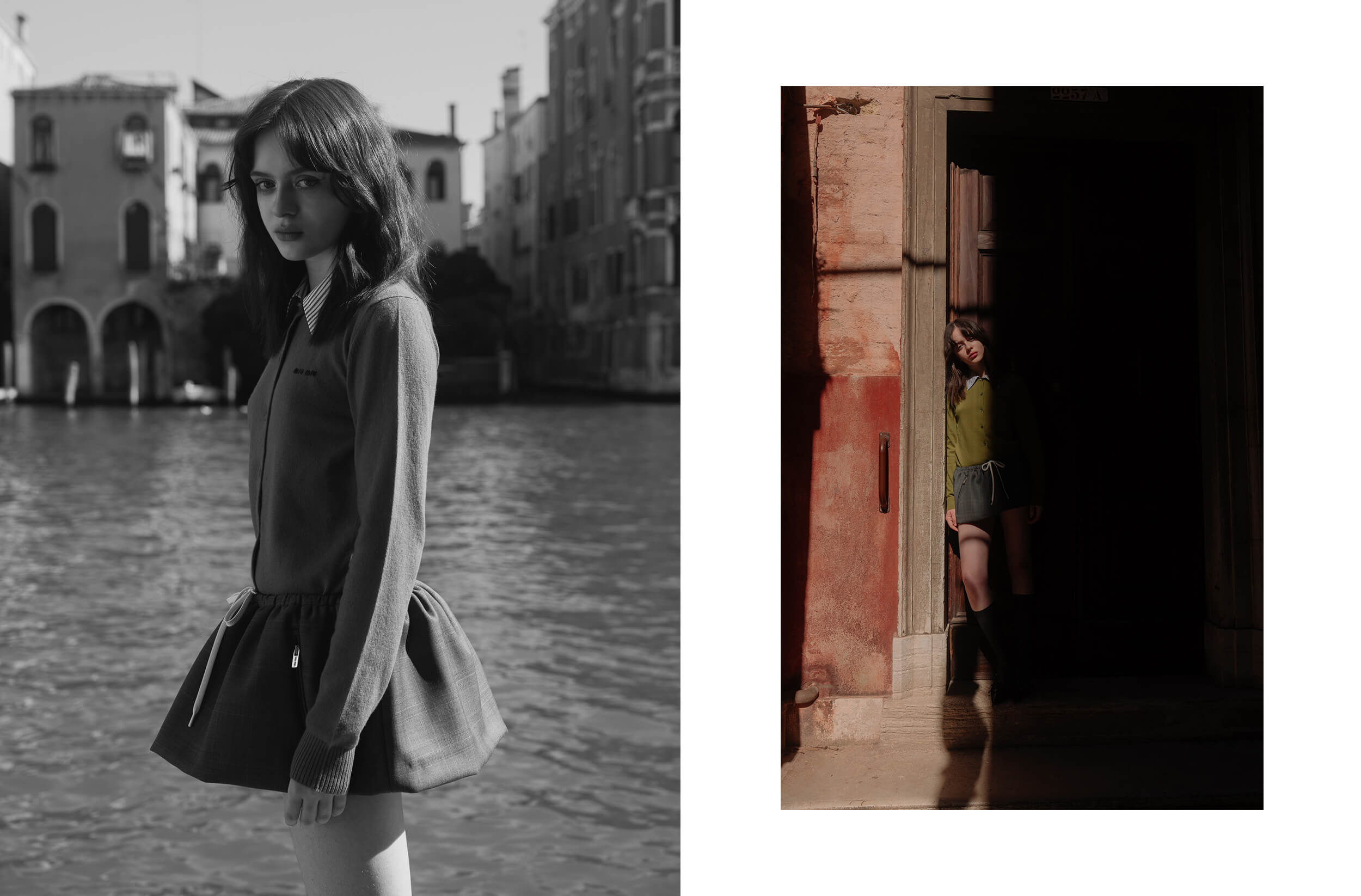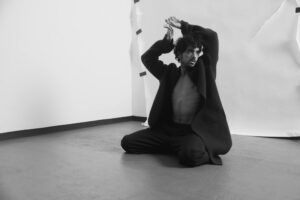When Mona Fastvold brings history to the screen, she does so with a rare intensity, crafting films that are as visually compelling as they are emotionally profound. Her latest work, “The Testament of Ann Lee”, is no exception: a historical drama unlike any other, where music, ritual, and human longing merge into something haunting and majestic. The film retraces the story of Ann Lee, the visionary and controversial founder of the Shakers – a religious movement built on celibacy, communal living, and ecstatic worship – that still survives in a small corner of America. It’s perhaps a story little known to most, yet one that resonates with surprising urgency today.
At the heart of this radical, immersive project is Viola Prettejohn, who plays Nancy Lee, a young woman torn between spiritual devotion and the pull of forbidden love. In our chat, Viola radiated the same openness and emotional clarity that define her performance. Together, we explored the intensity of embodying Shaker rituals on screen, and how this extraordinary experience changed the way she thinks about art, vulnerability, and even her own voice.
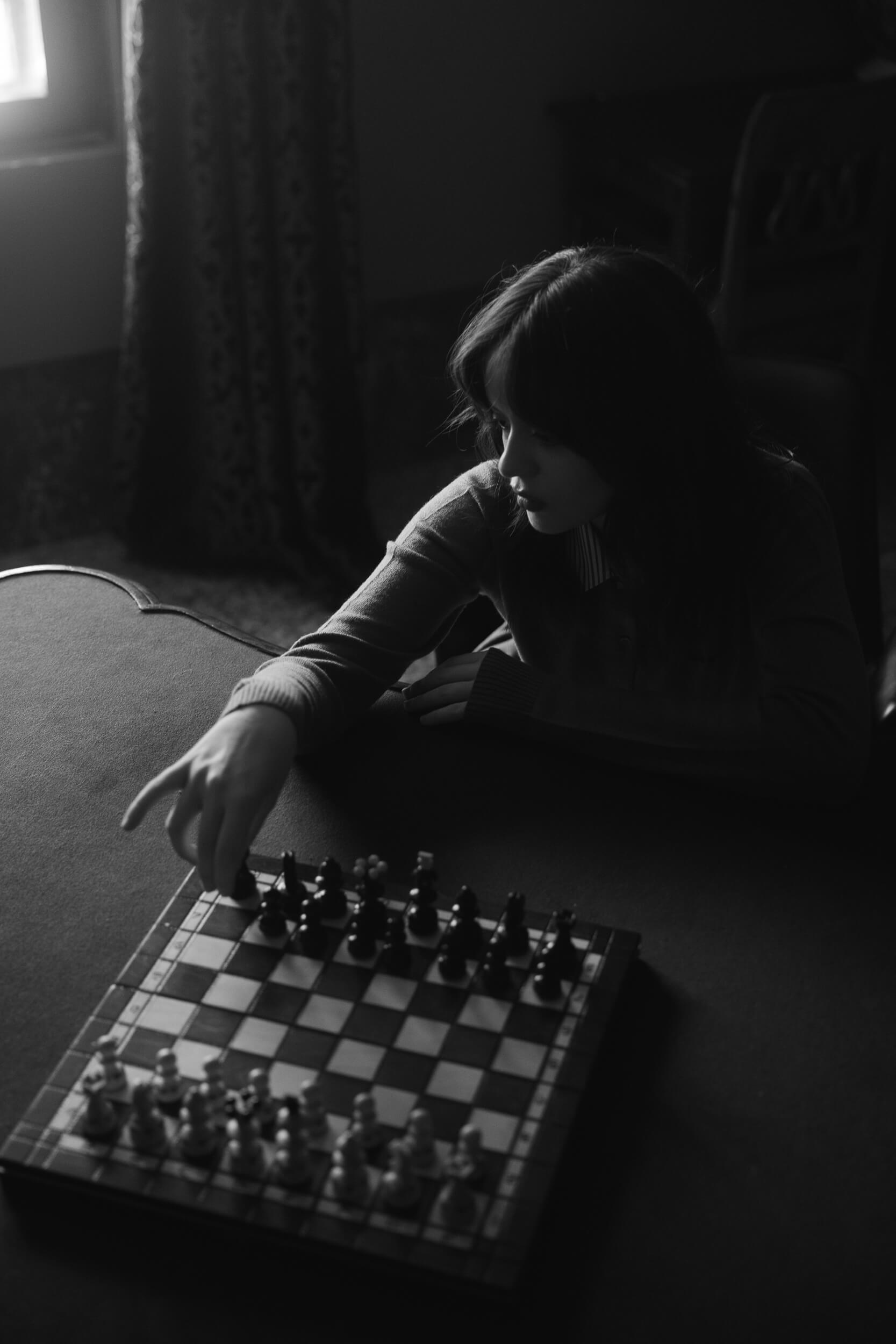
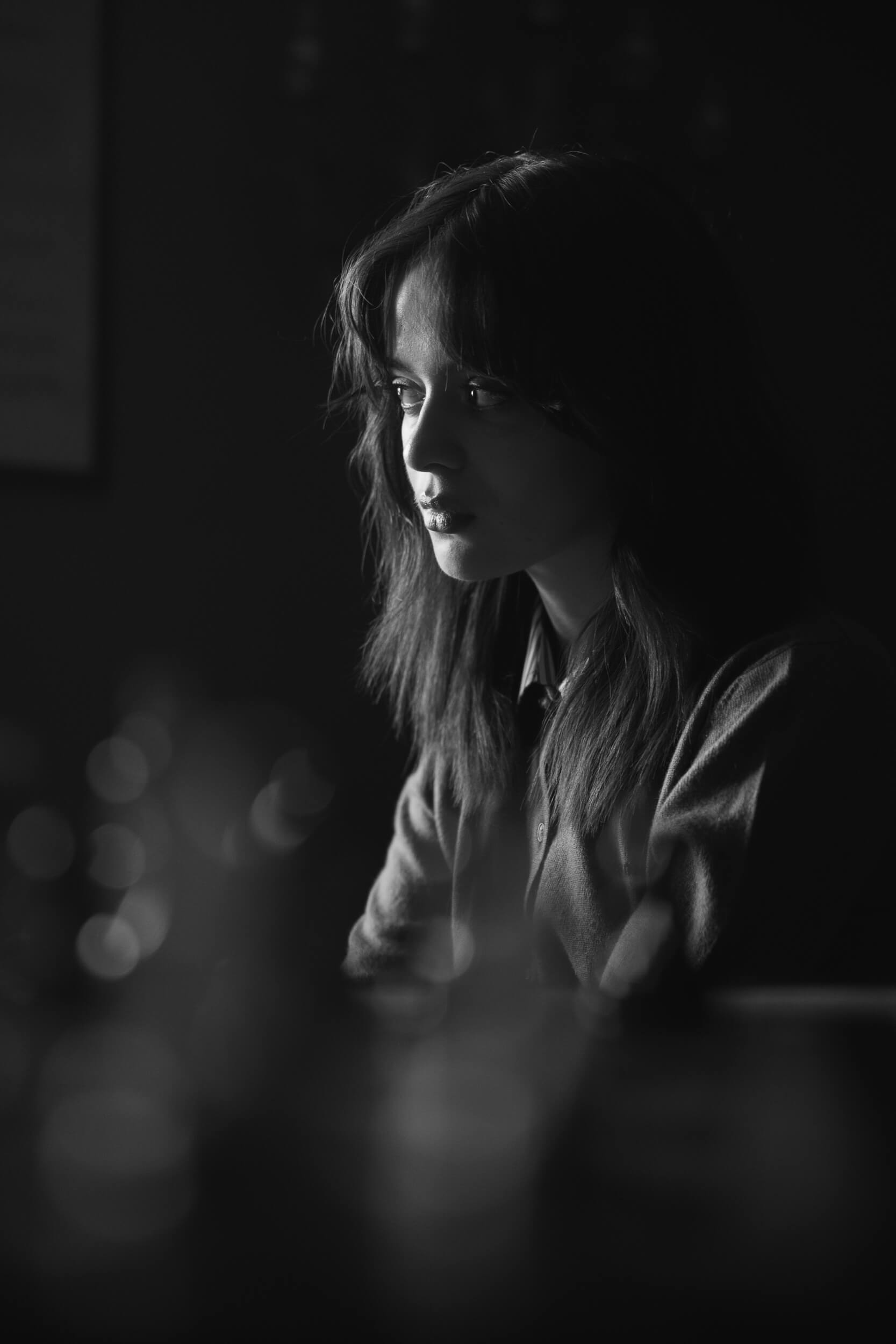
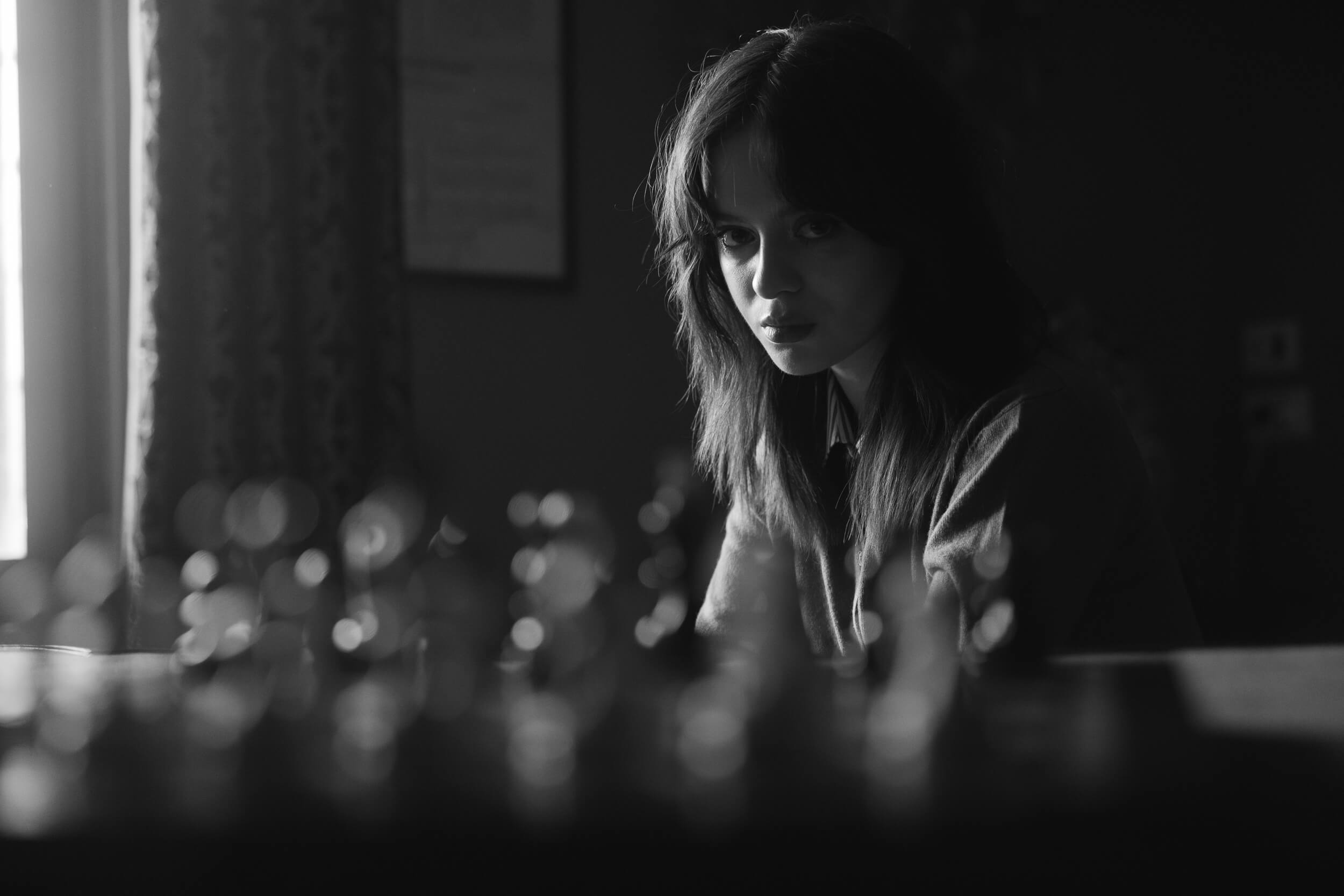
What is your first cinema memory?
As a kid I watched “Mary Poppins” religiously over and over again and it’s still one of my favourite films of all time. You know, it’s set in London and I grew up in London, but it’s a London that doesn’t really exist and it has never really existed – it’s a beautiful fantasy land of London, and I think I loved it for that reason, because I could leave my house and walk around and pretend that it was the London of “Mary Poppins”. I guess that’s the start of my love of musicals.
And now, I’m in one, which is crazy.
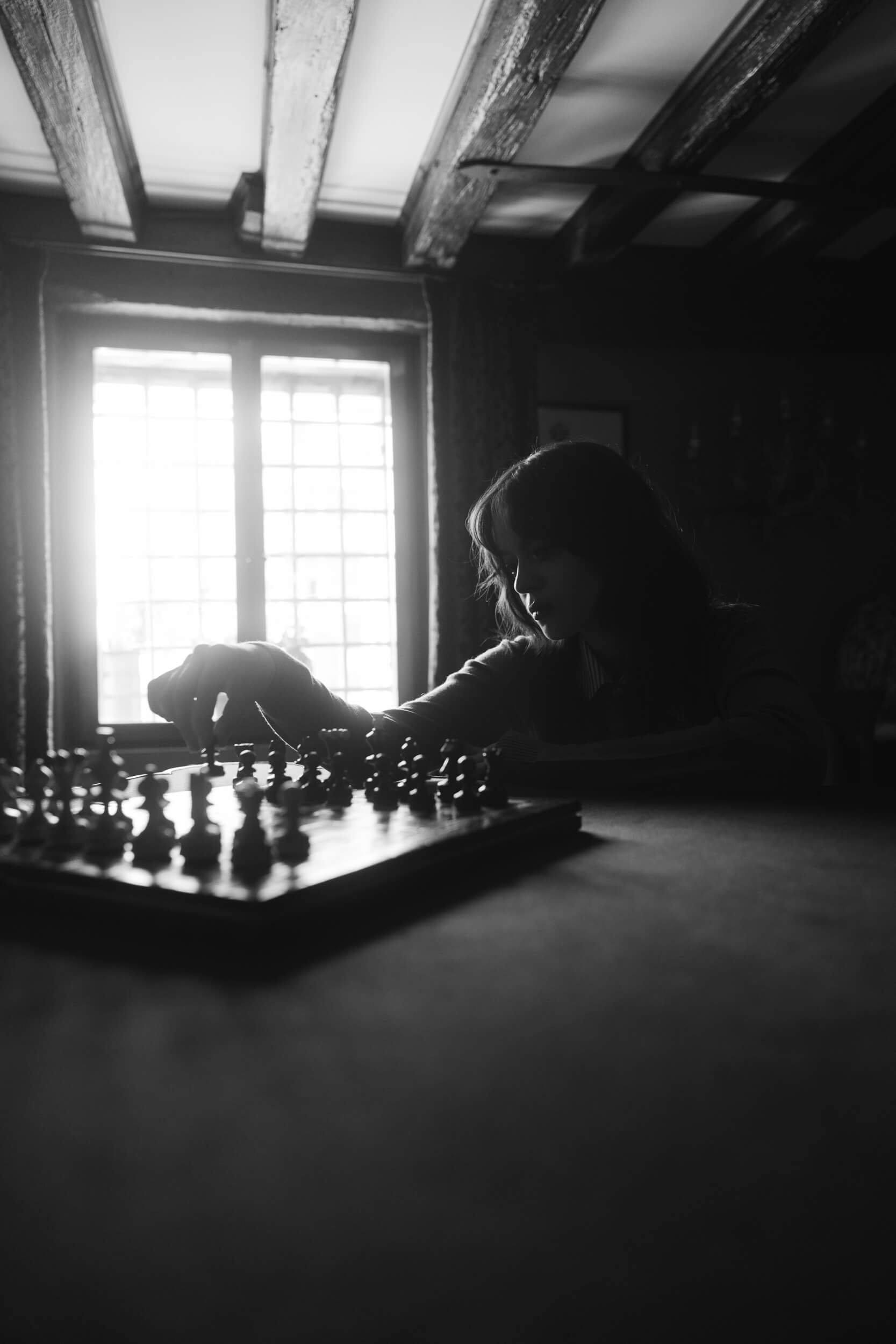
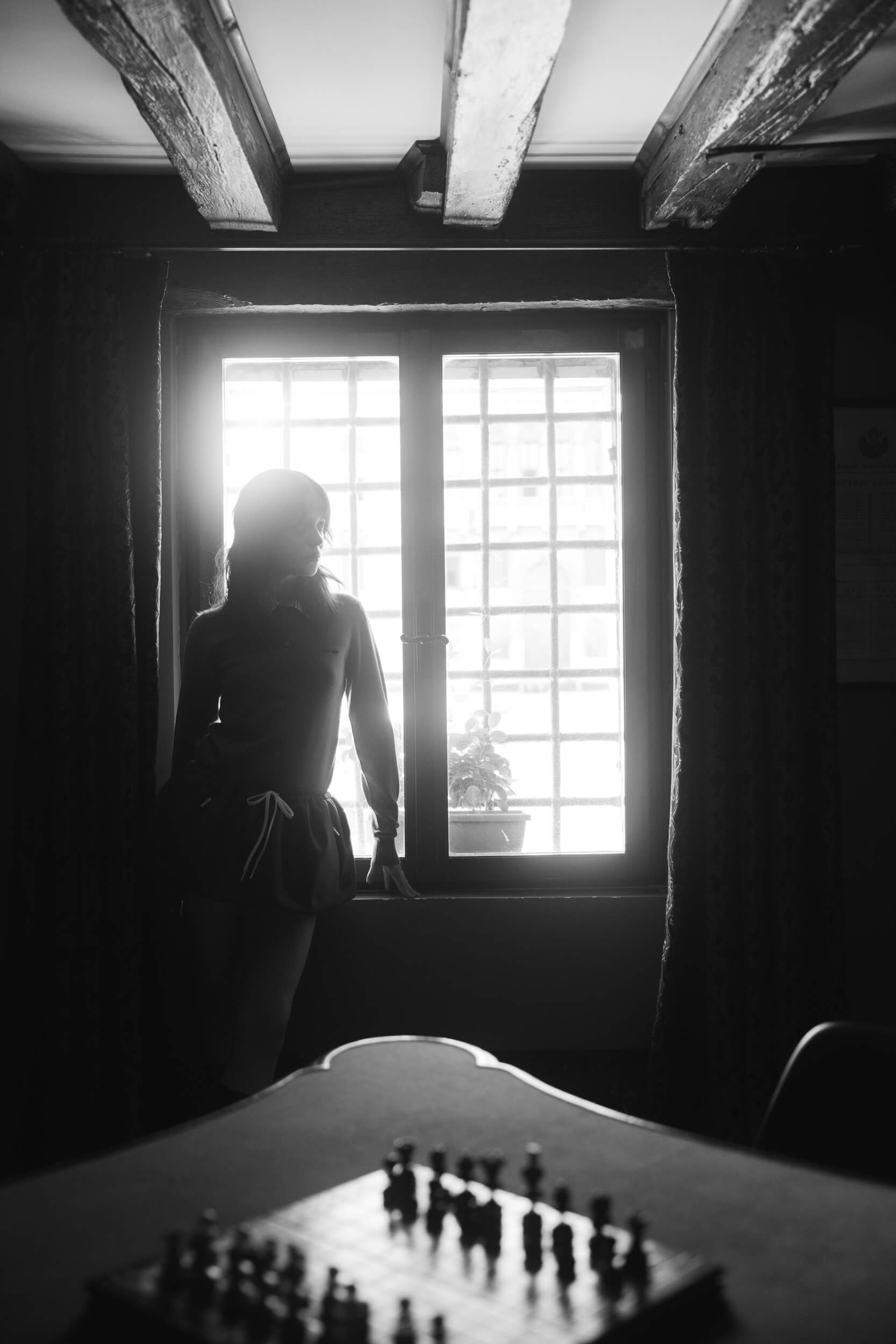
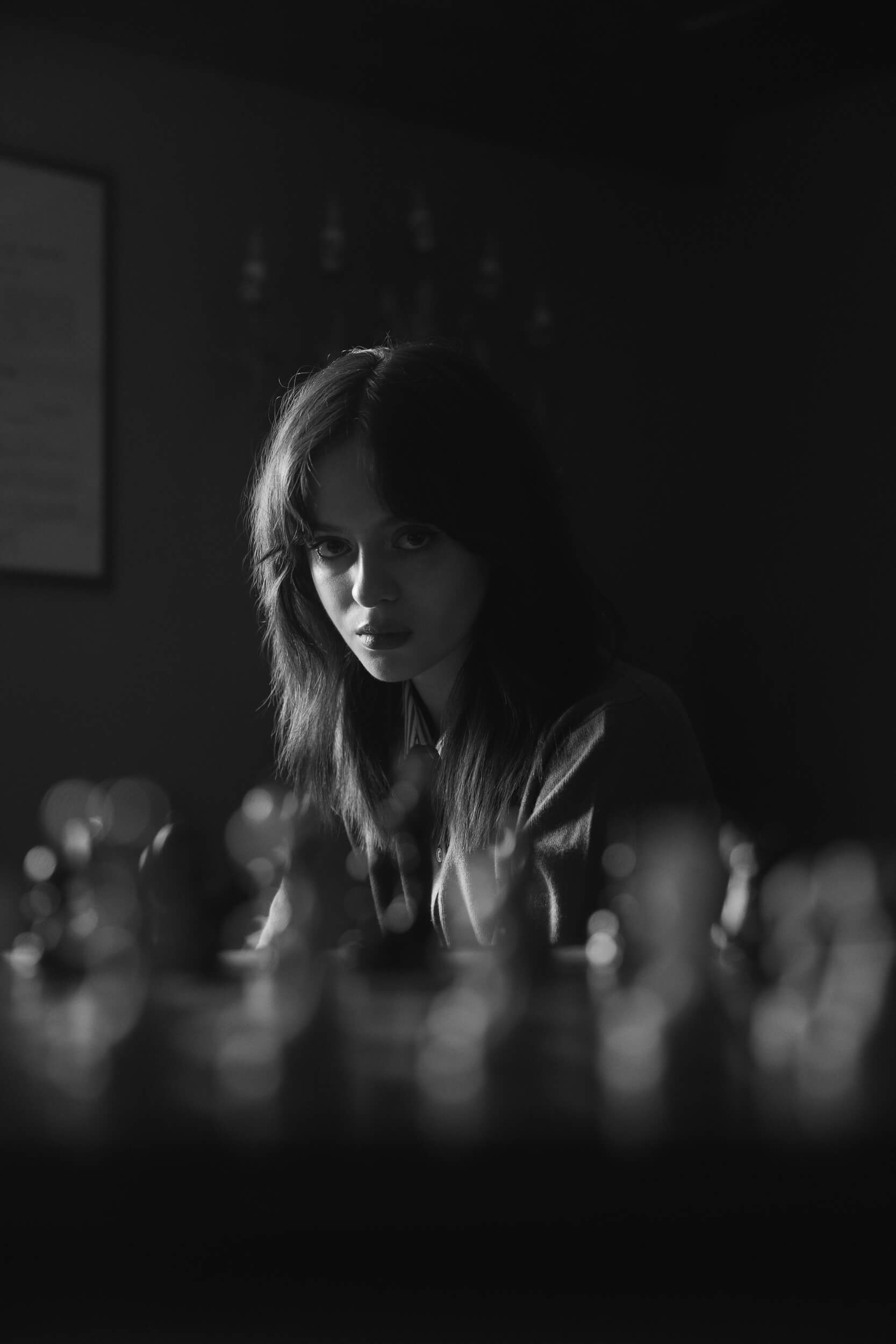
Yeah. Speaking of which, after watching “The Testament of Ann Lee”, I couldn’t stop thinking about what I saw. I got back home and spent hours looking for information about the cult. It’s so fascinating. Ann Lee’s radical vision – celibacy, communal life, expressive worship – feels both alien and poetic, I think. How did you approach this while working on the script and preparing your character?
I think it was less focussing on my character but more making sure I was hyper-present as part of the ensemble cast because it was such a communal making of the film. So, it very much felt like the importance is not on my individual character’s choice, but rather making sure that I was the most present I could be with everyone else.
I think everyone was so focused on giving everything they could to the dancing and to the singing, and it was a very physical job which used our bodies and our voices in ways that are not “normal” and most of us hadn’t really done before. This required a lot of trust with each other because it’s a very tactile film. You needed to be vulnerable with your fellow cast members, but it was also important to have confidence and be in a trusting enough space to be able to make those noises and express yourself in such a bold and grand way. We had a week of rehearsals before we actually started shooting and that was vital for us to get into that rhythm, trying things out and learning to really trust our movement.
It took me a while to trust my body enough to be able to go as far as Cecilia [Rowlson-Hall], our choreographer, was asking of us because I hadn’t done anything physical in that way before.
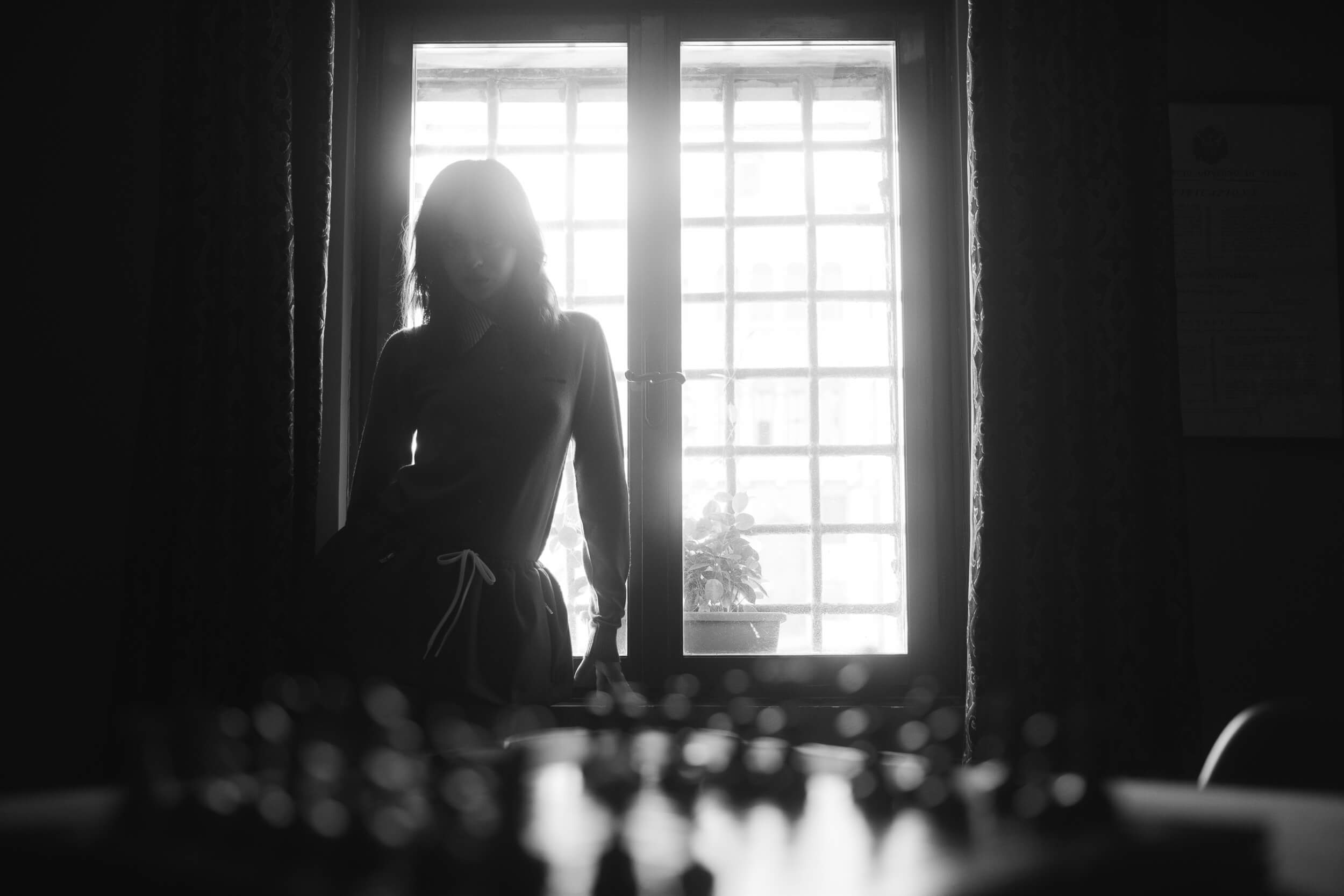
“…it was a very physical job which used our bodies and our voices in ways that are not ‘normal’ and most of us hadn’t really done before.”
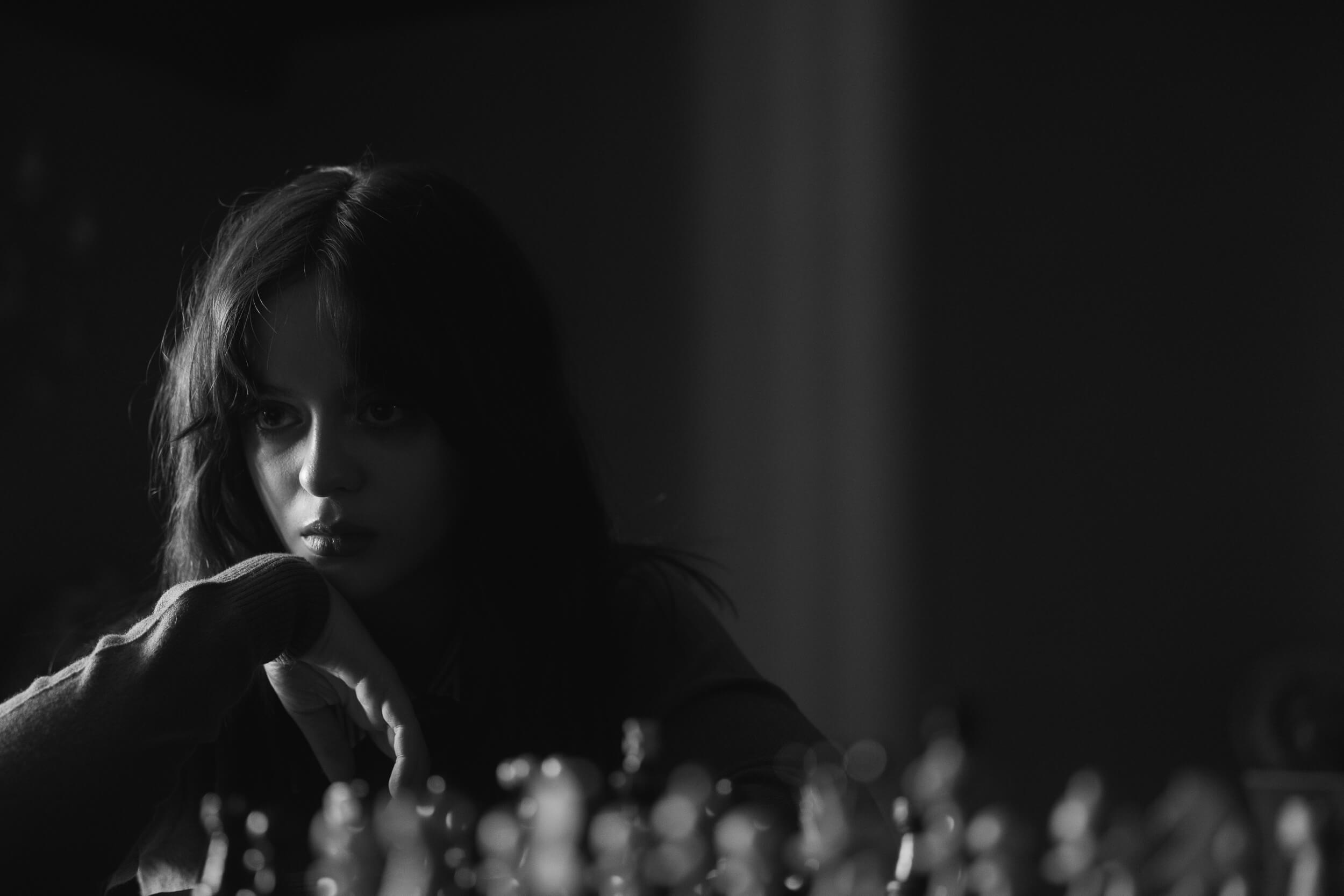
Yeah, because the Shaker rituals – dancing, singing, trembling in worship – are so unique. What was your experience like learning to embody that physical spirituality on camera then?
Honestly it was from everyone else that I felt confident enough and learned how to do that. I was feeling such a connection with our group. Mona has an amazing talent at getting the right people together for the right thing and she’s incredibly talented at choosing to cast groups of people to work together – she really just couldn’t have been more right about the people in this film because it didn’t take very long for us all to trust each other. Also, most importantly, we all believed in the project so much, and we were all so excited to be there and so excited to be a part of it. There was no part of us that was holding back. We wanted to give Mona what she wanted because we all believed in her so much. She’s such a fierce leader in a way that whatever Mona wants, we’re going to give it to her because that’s what she deserves for the film. It was such a monumental undertaking for her and for everyone that it required absolute commitment so there was no real option to not be committed.
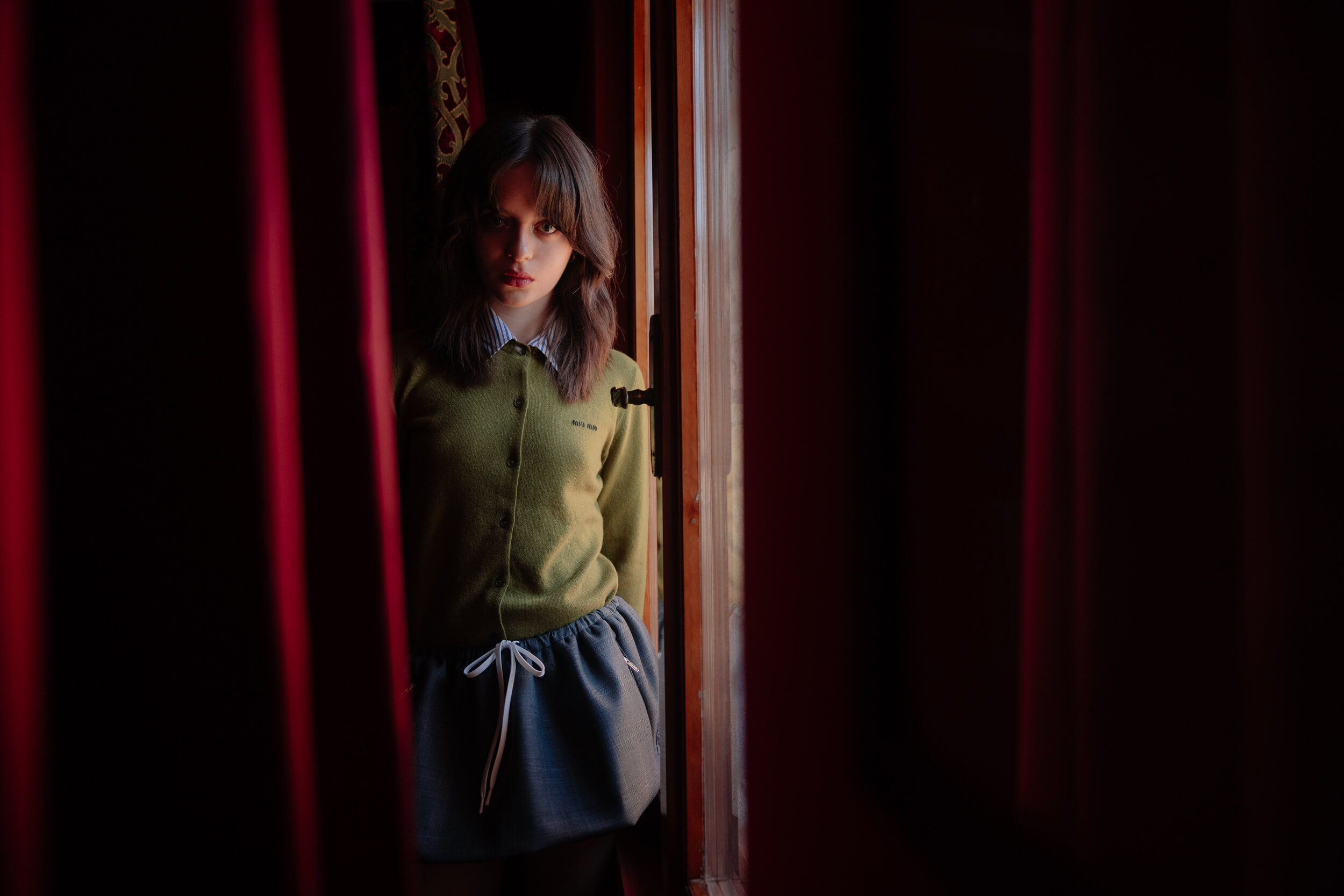
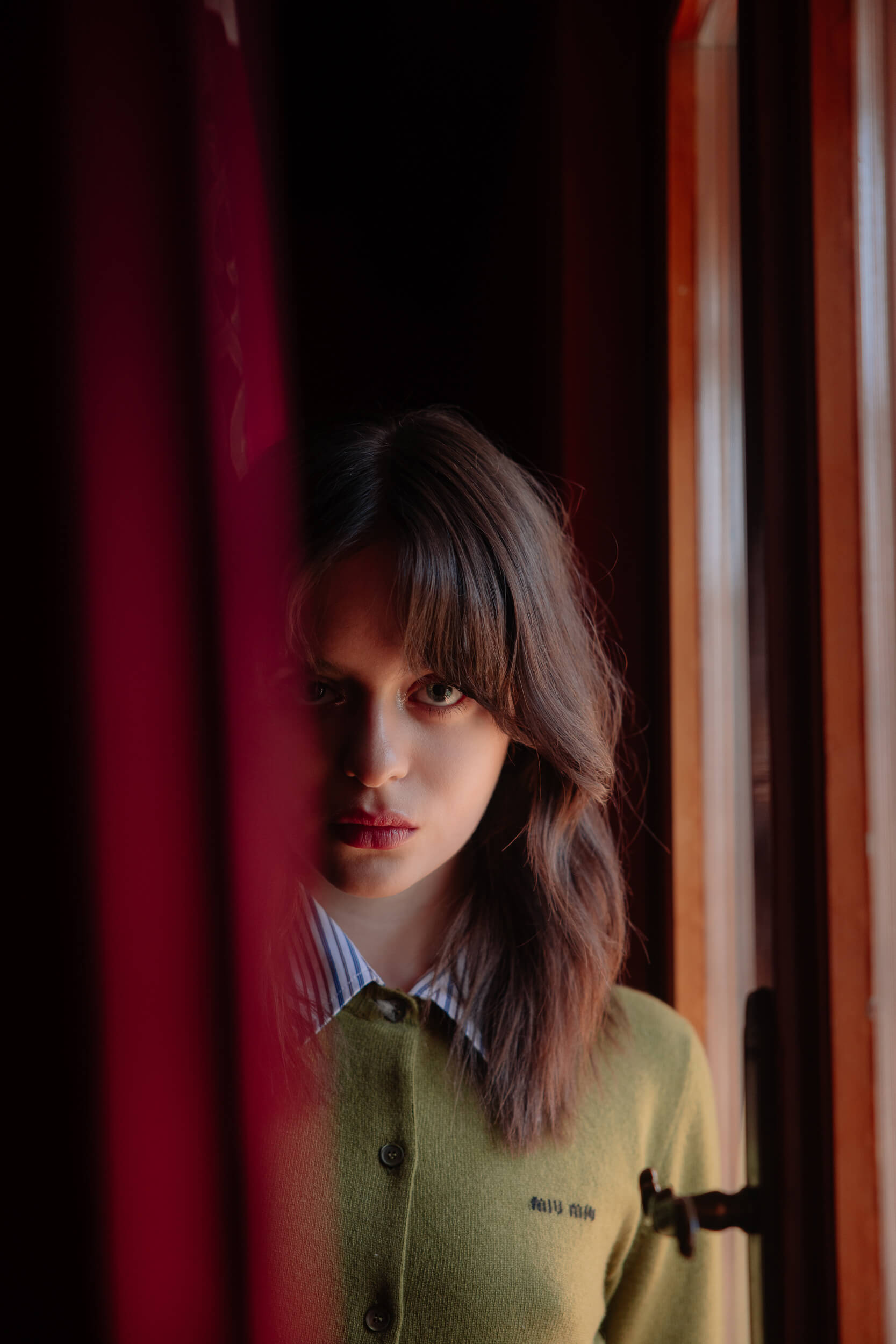
Speaking of your character, Nancy, she is a complex figure because she’s torn between personal desires and the communal expectations. How did you approach the emotional journey of this character while playing someone who quietly rebels within such a tight, strict society?
I think it almost didn’t feel like a rebellion. I don’t know, I think I was so focused on the world of our film when we were making it that when it came to all of that, it didn’t feel like a betrayal. I remember talking to Mona about it and she said that my character’s love for the boy is the only example in the film of a really beautiful romantic love that is pure and true. These two characters really do love each other and so it didn’t feel like a rebellion or a betrayal or anything like that. Nancy had grown up expressing her religious beliefs, her love for God in that way and I guess that gives her confidence to believe, when she feels those feelings, that that’s the path that she’s meant to take. It’s heartbreaking for Ann, but she doesn’t bear any resentment towards Nancy: she sees Nancy experiencing this love, experiencing this connection, she doesn’t see their love as a bad thing.
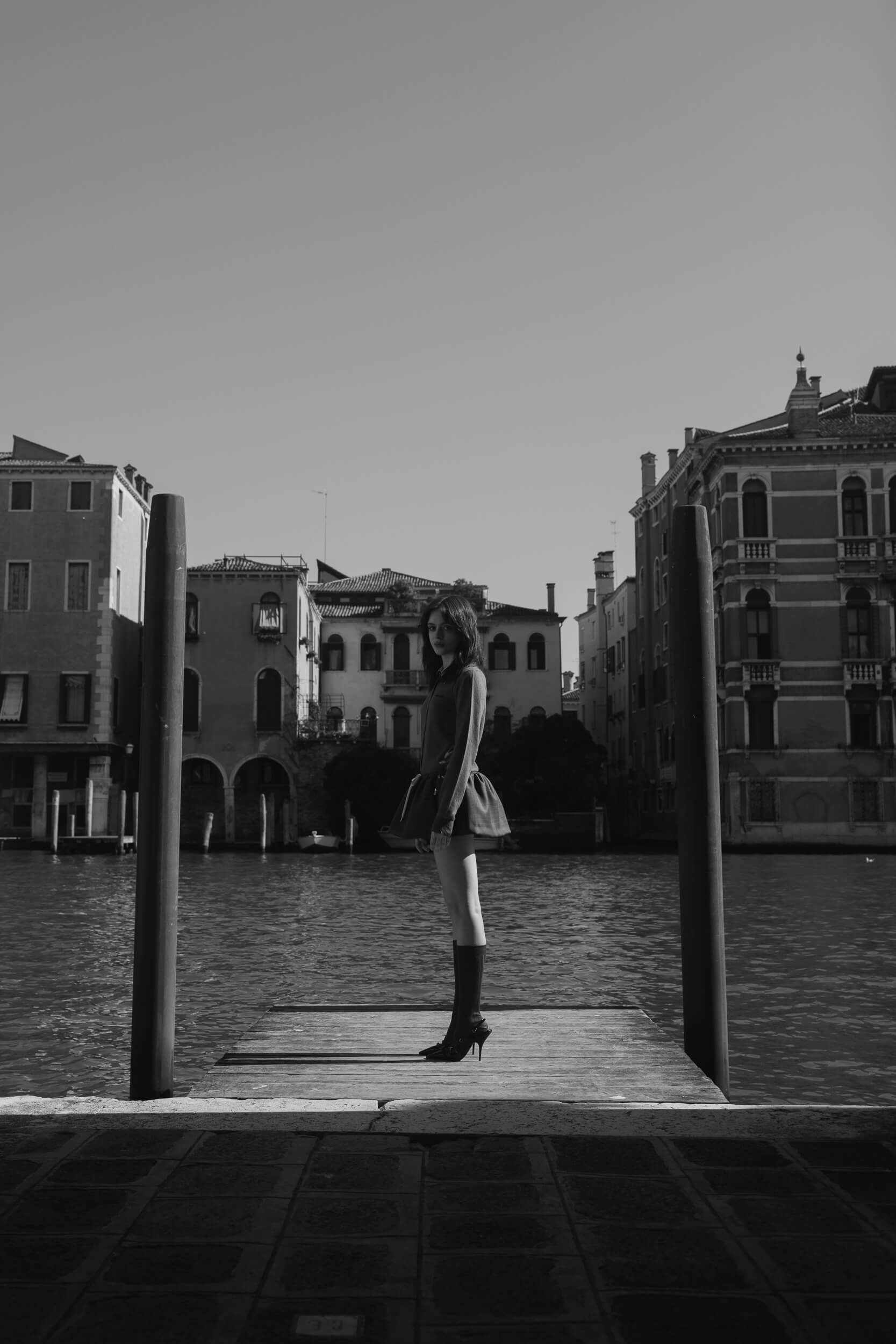
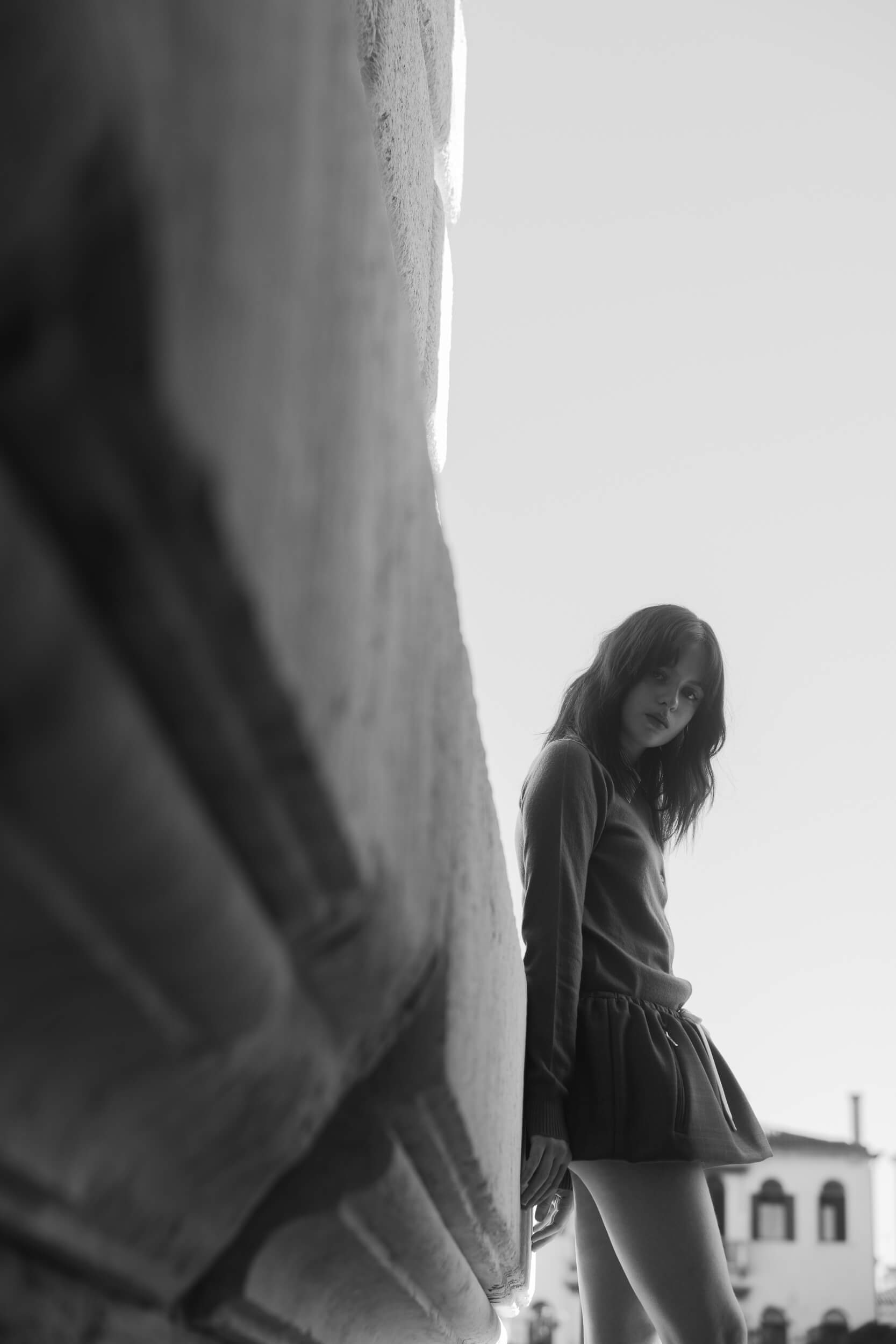
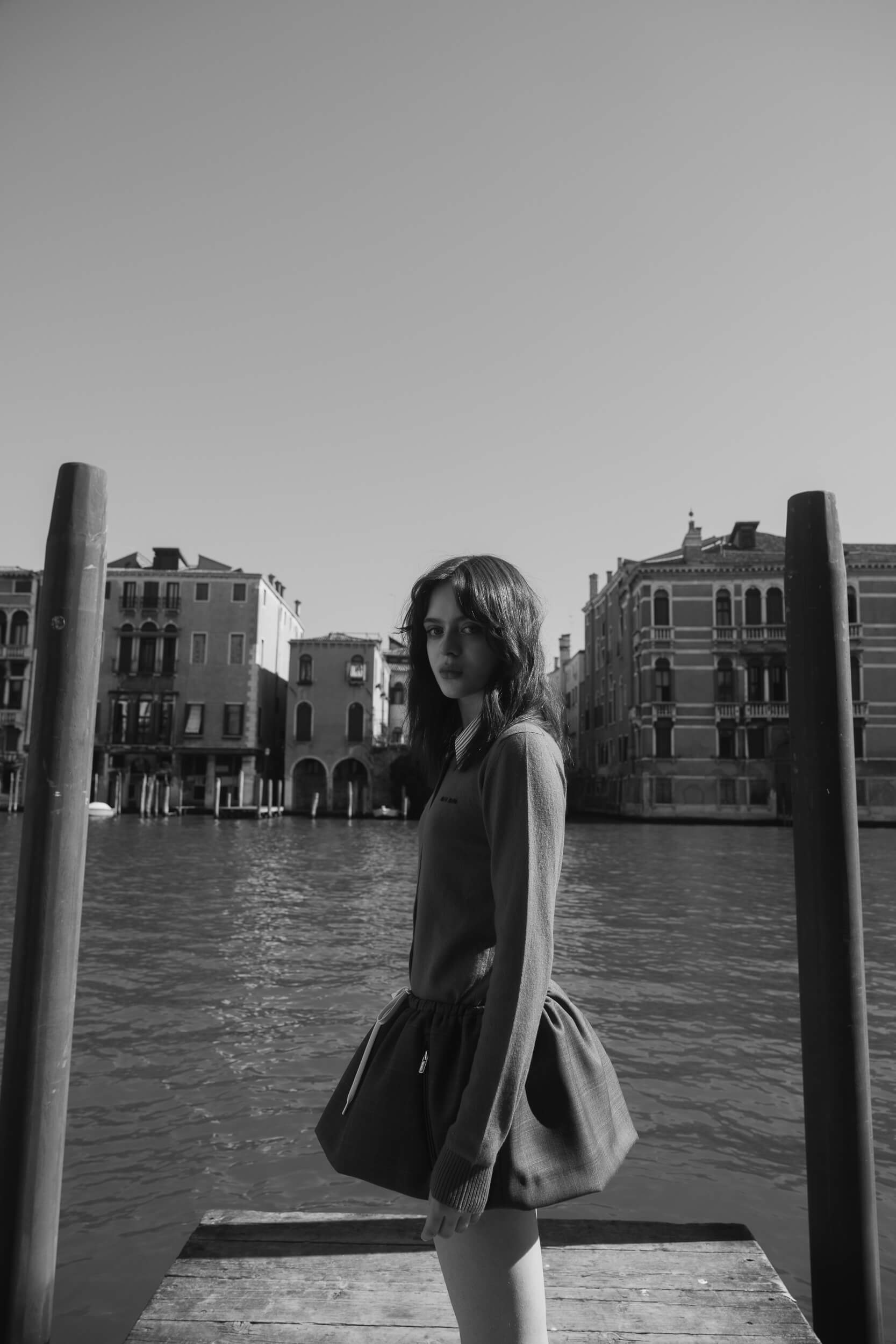
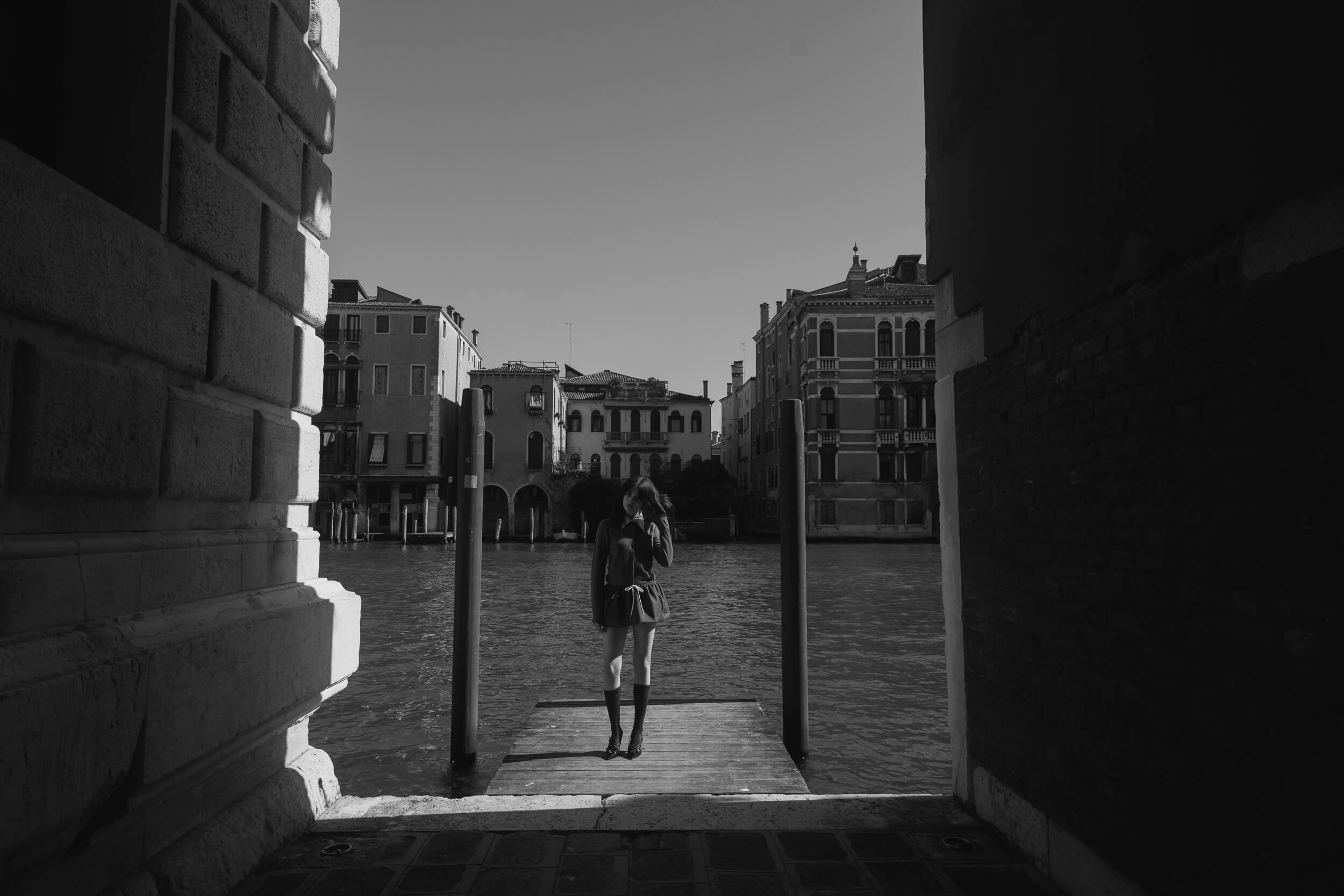
I remember you telling me that you wouldn’t call this movie a musical, and now that I’ve watched it, I understand what you meant. How would you describe it then?
It’s a radical piece; it’s a multi-medium art project in many ways. The music is so interwoven in every part of the film, very rarely are there moments of silence, and the dance sequences feel very organic. I think it feels like you’re watching a painting coming to life. It’s a very epic film, a radical epic is how I would describe it.
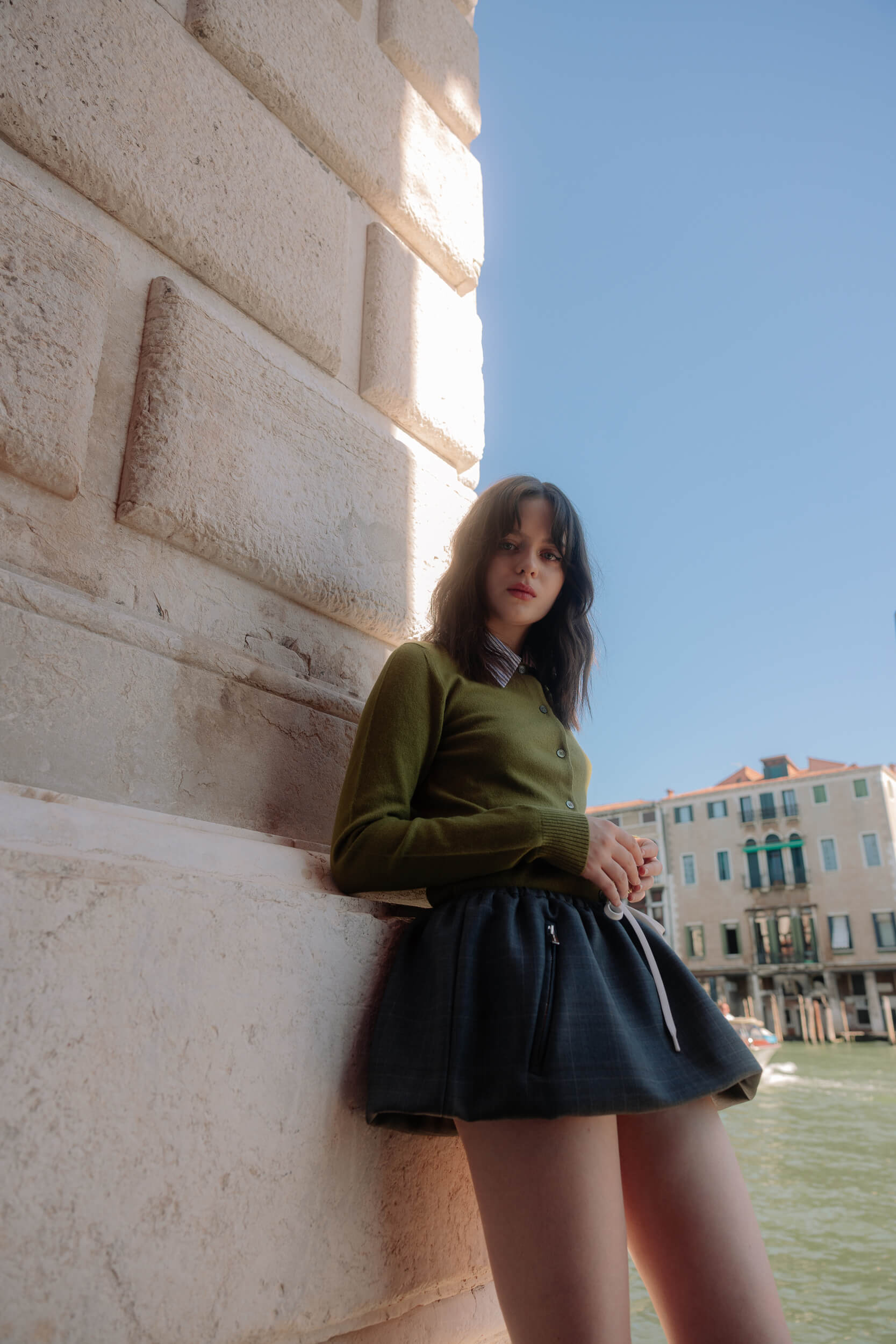
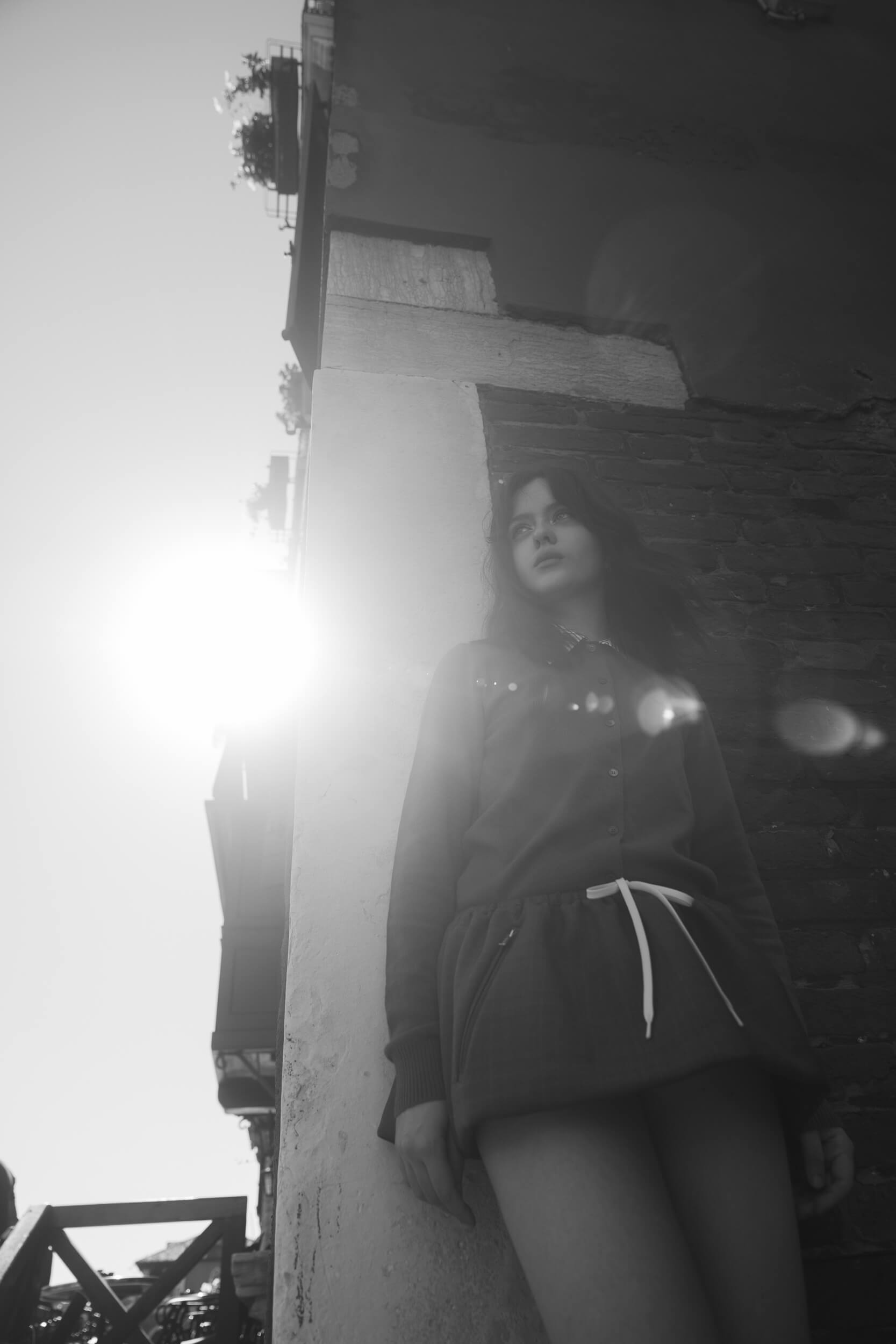
“A radical epic”
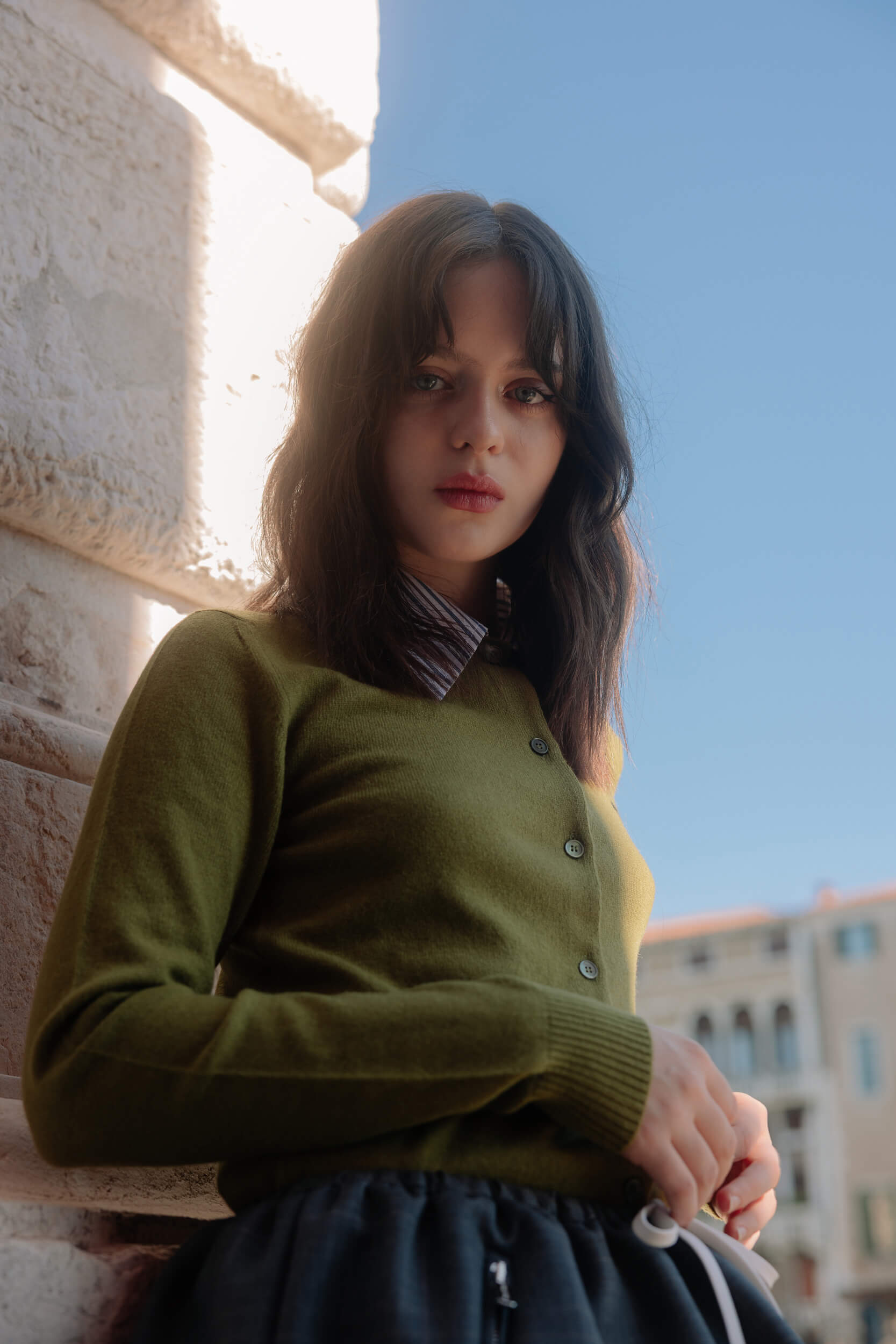
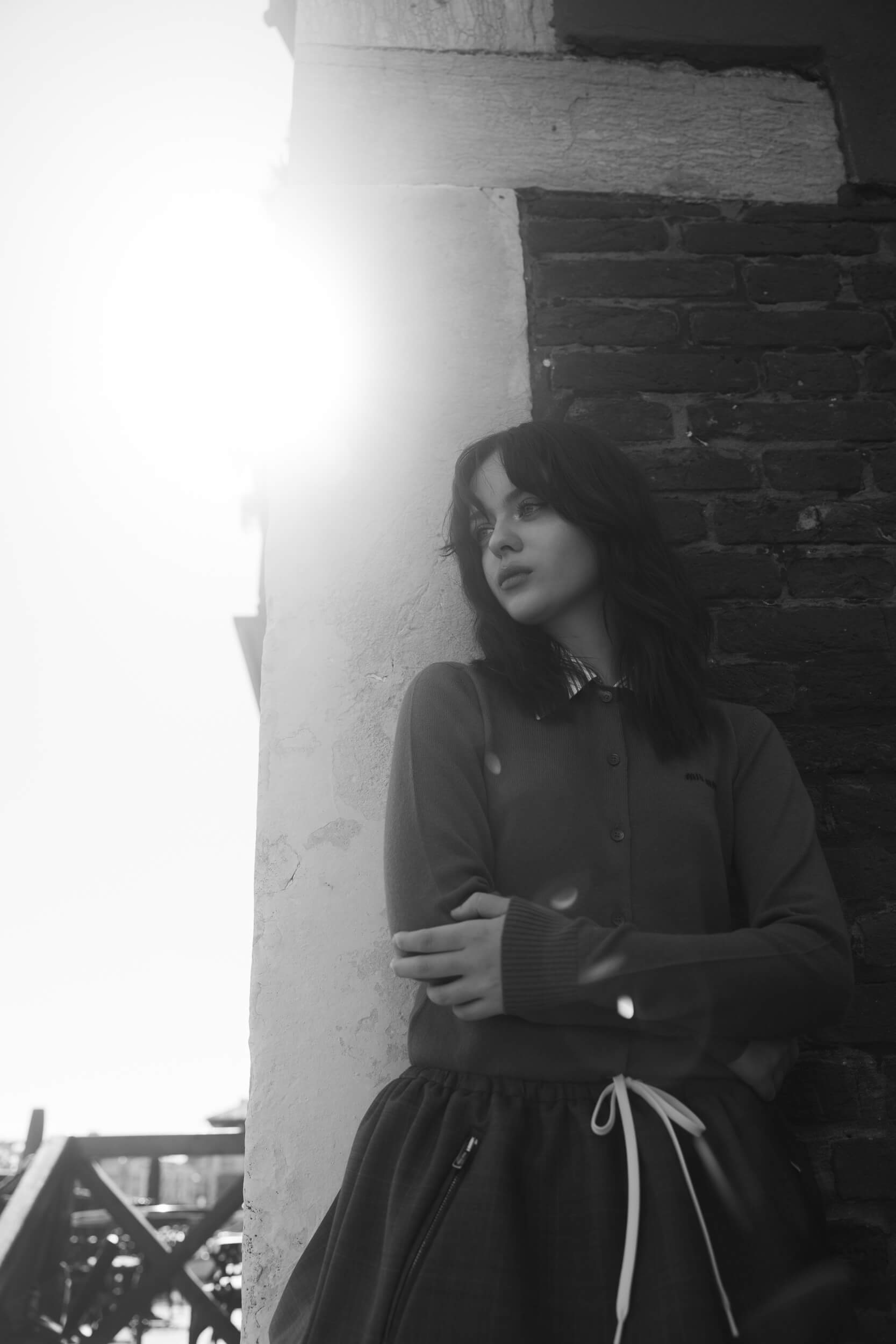
And the singing is very peculiar, somewhere between the eerie and the enchanting, sometimes featuring “animal sounds” resulting from grief and desperation. You sing in a few scenes, too – how did you prepare to blend acting with those intense, ritualistic musical moments?
We first started with the music, we went to the recording studio at the beginning of filming and our composer, Daniel Blumberg, asked us, who were sitting in a circle, to make “noise”, and everyone found it hilarious to begin with. It is quite funny, actually, it’s a sort of ridiculous thing to do but it opens you up and it makes you drop your barriers down because everyone’s doing it and everyone sounds ridiculous. It was part of the trust process, practising just making a noise and not caring what it sounded like when it came out because it could sound horrible, it could sound beautiful, it could sound scary. It was just about using your voice in a different way.
When it came to singing the song on the boat, that was one of the few moments where it sounded like a beautiful song, because that’s a love song sung in a sort of thoughtful moment. However, I bet even there the singing still sounds ghostly.
There’s a reprise of it in the scene where we’re sitting around the dinner table at the Cunningham house and I remember talking to Daniel about how it was almost like casting a spell on the Cunninghams. So, yeah, the music takes on different qualities throughout the film and I remember getting to a comfortable space where I could be recording and just go up the microphone and try a harmony, and anything that came out was usable. I did one thing where I messed up a note when I was singing, and I was like, “Oh God, that was off-key” and I did a little like squeak, and Daniel said, “We’re going to use that squeak, can you do it on purpose?”, and so I stood at the microphone for half an hour trying to replicate this high-pitched squeak that I’d accidentally done [laughs]. It was like forcing yourself to do things that you haven’t done with your voice and with your body before.
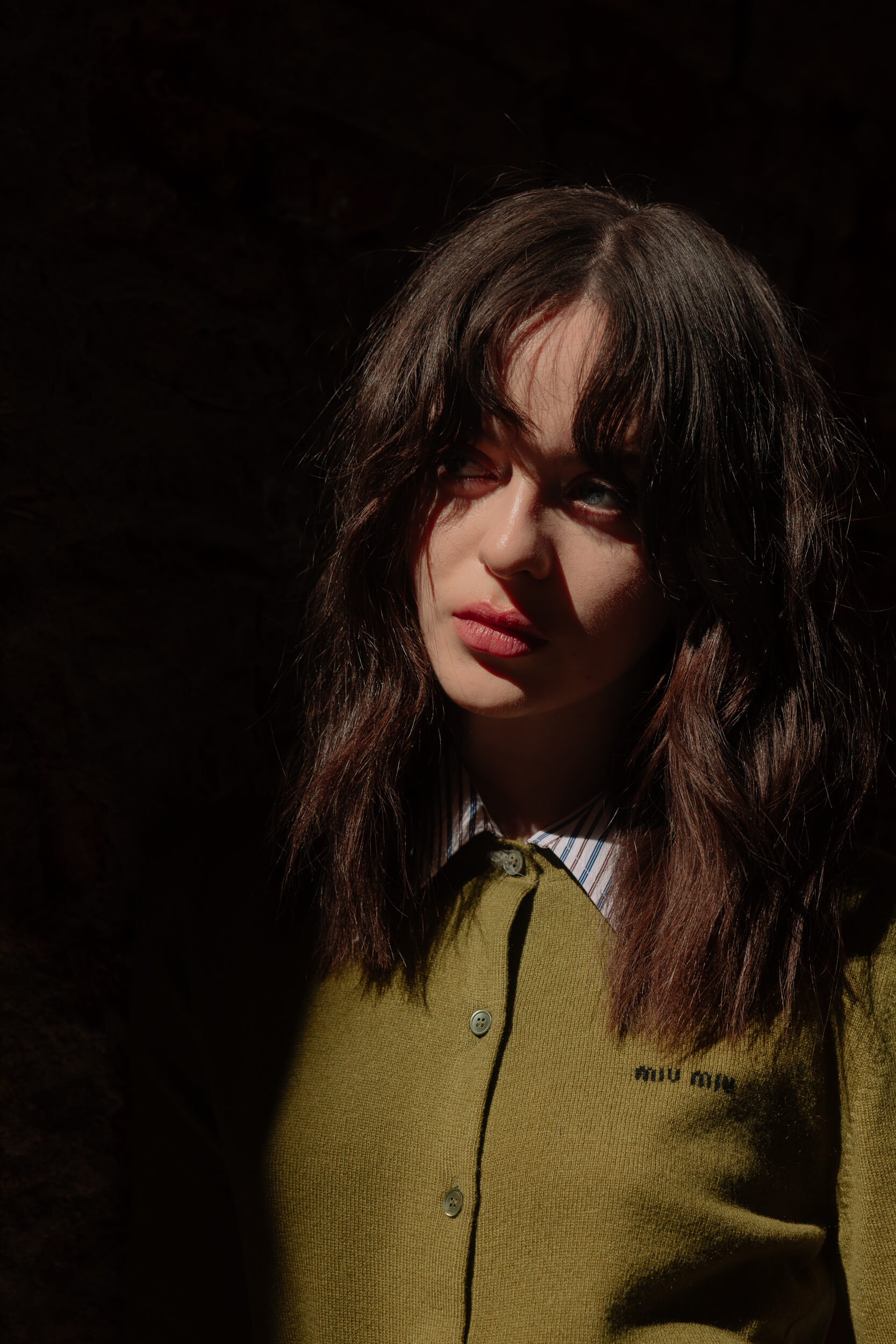
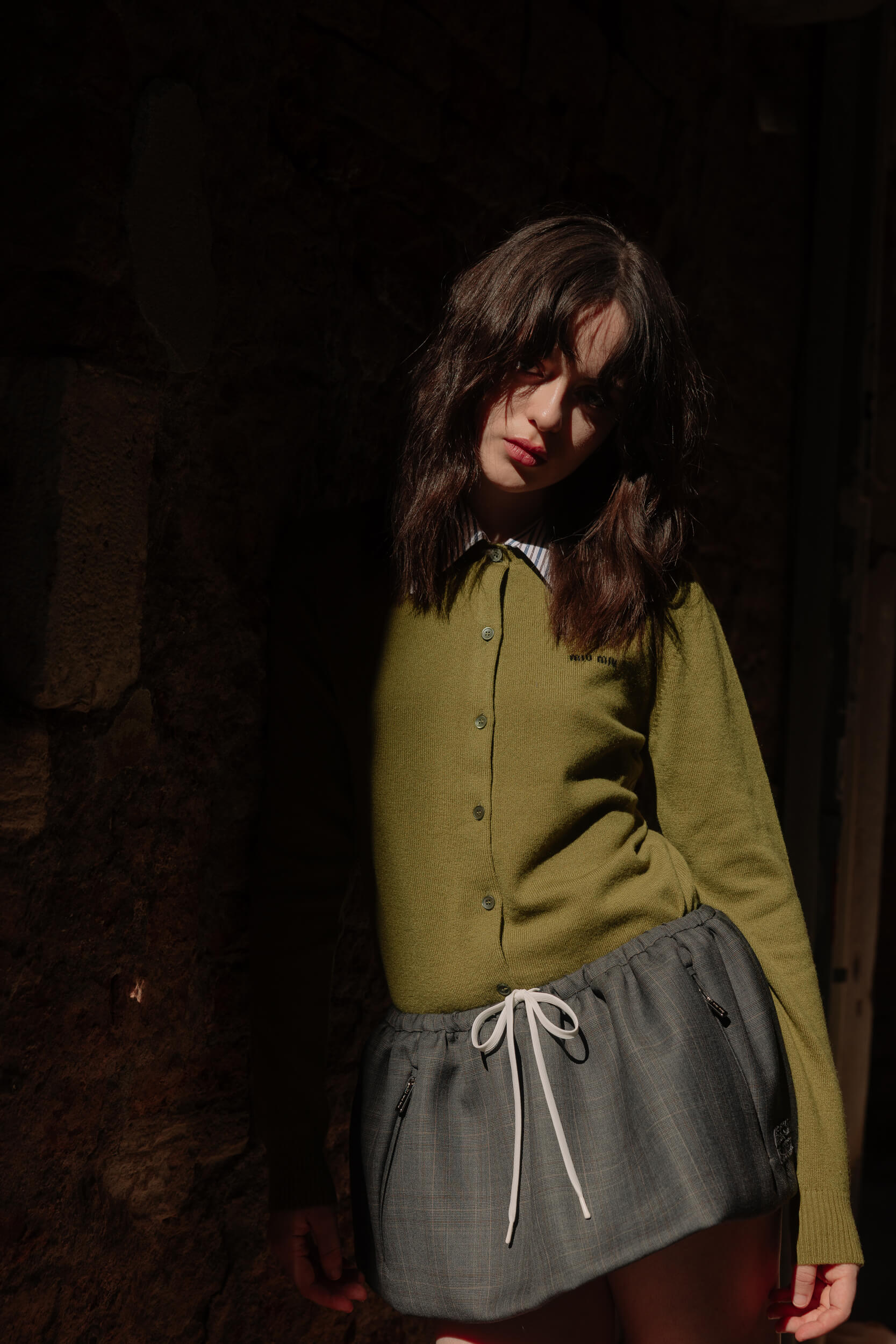
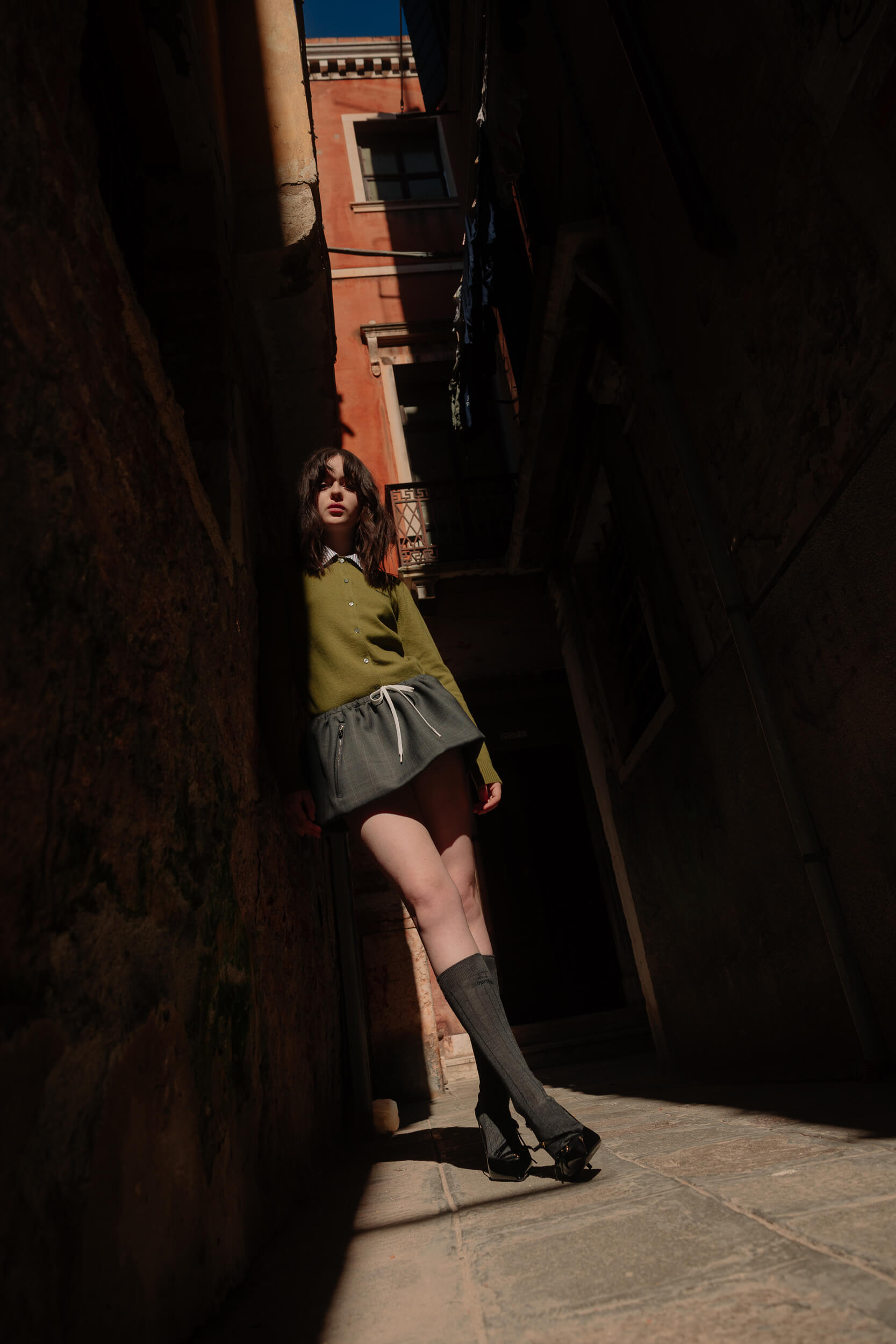
And what do you hope audiences take away from this film once the music fades and the credits roll?
Well, there’s actually a very beautiful song over the credit roll! I think that it’s deeply moving, but quite uplifting, and in some ways it’s quite optimistic.
Personally, I was very overwhelmed by the film. I’m pretty sure that everyone going to watch it won’t have any previous knowledge of Ann Lee, so perhaps they, too, will feel overwhelmed by the power of this woman. It’s a very communal film, and what you see is the power of a group of people deciding to achieve something and making it their life’s work. The Shakers were a communal religion which was all about service for one another and selflessness and working for each other, and I think that’s a very uplifting message.
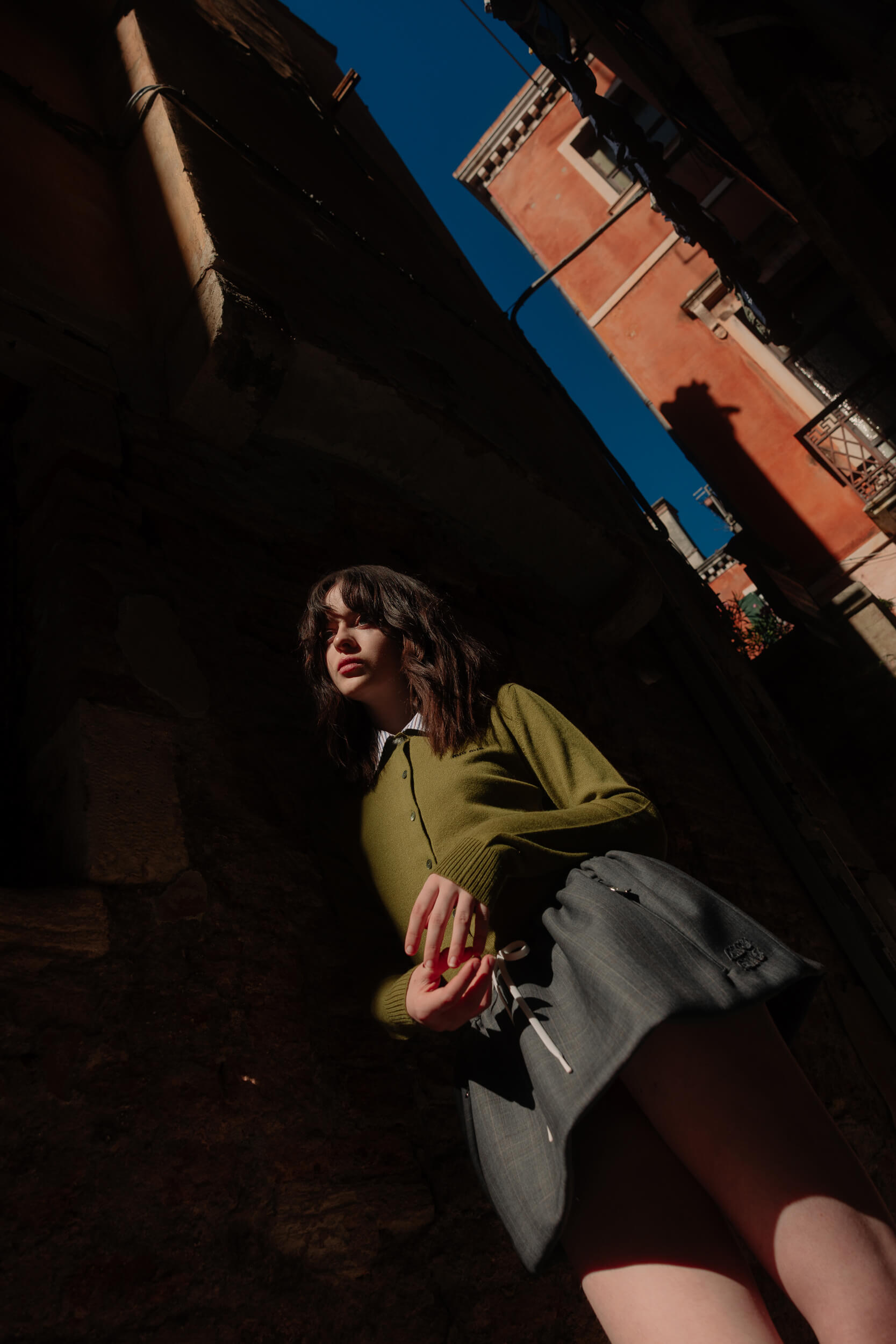
“…what you see is the power of a group of people deciding to achieve something and making it their life’s work.”
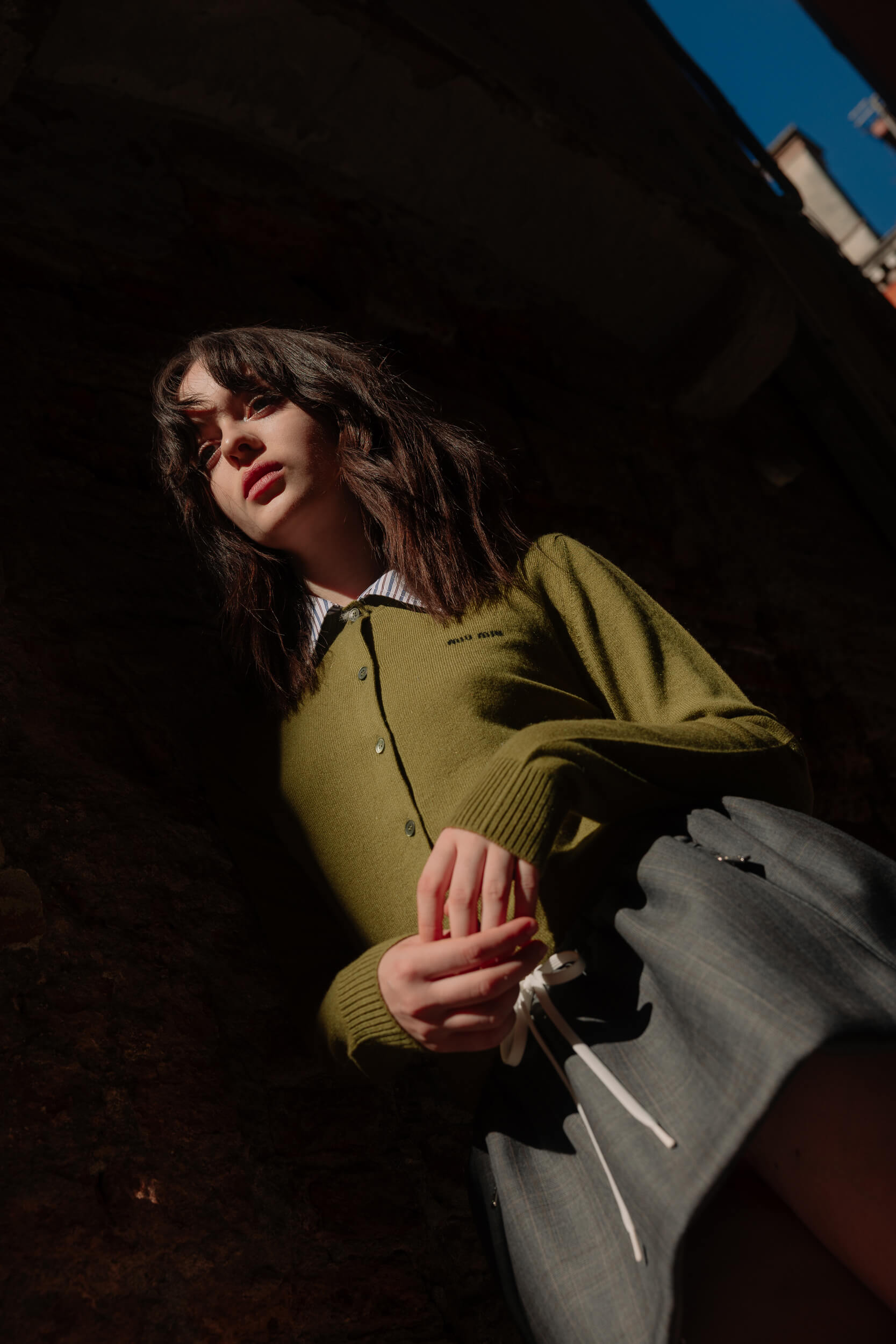
Acting, in my opinion, often confronts you with unexplored aspects of being human and, consequently, helps you understand yourself better. What is the last thing you discovered about yourself through your work?
So much.
The experience of making this film totally changed my life. Being surrounded by such great artists, really artistic geniuses, working so closely with them really makes you step up the game a little bit, It made me think, “I really have to be on my top form” while filming, but also afterwards I just thought, “I need to explore all of these other artistic interests that I have, that I haven’t been tapping into at all”. I’ve always drawn a lot, but I after doing that film, I thought I really need to focus on drawing. So, I started doing loads of life drawings, I started writing, and this made me think I should be spending more of my time being creative because it’s such a worthwhile thing.
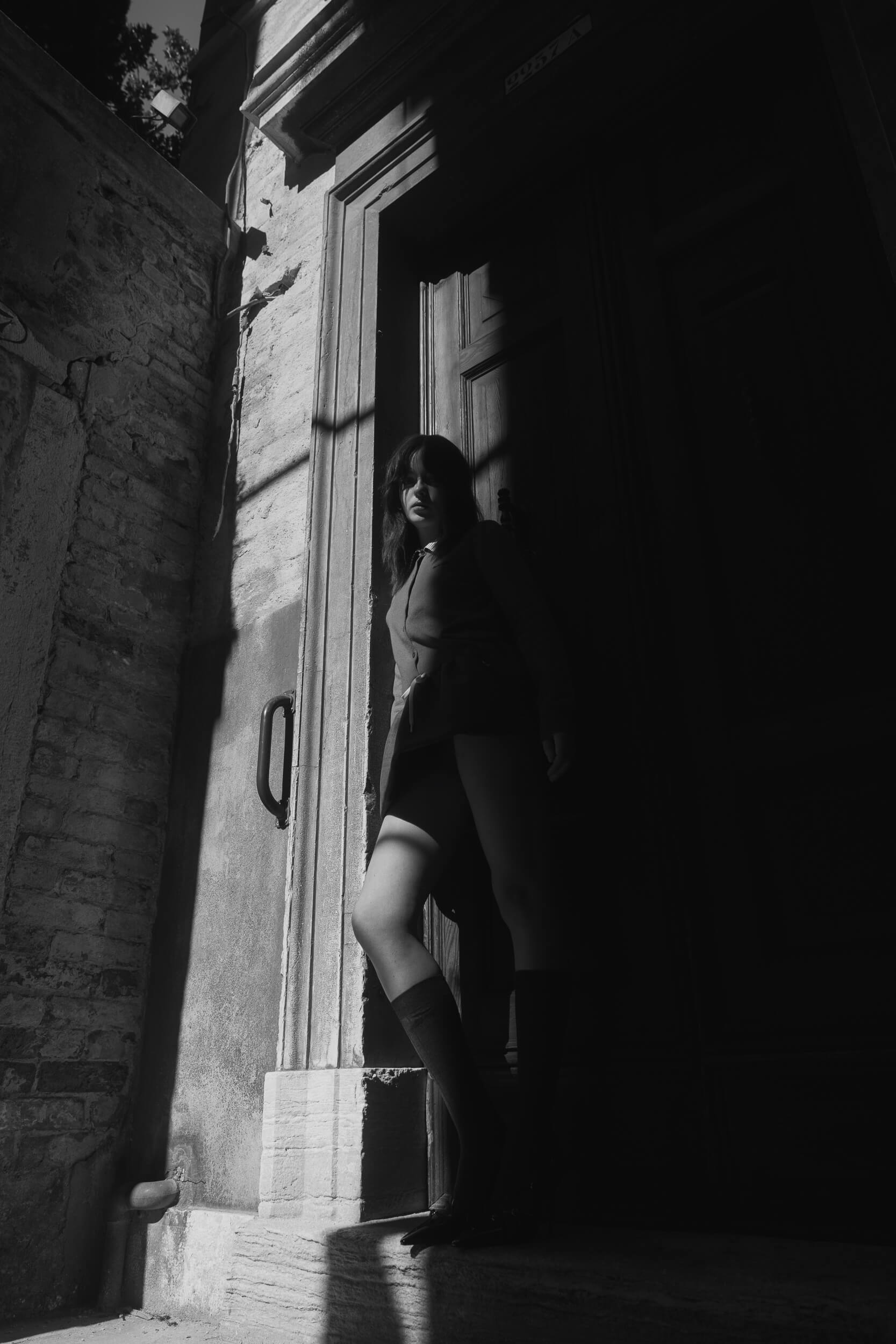
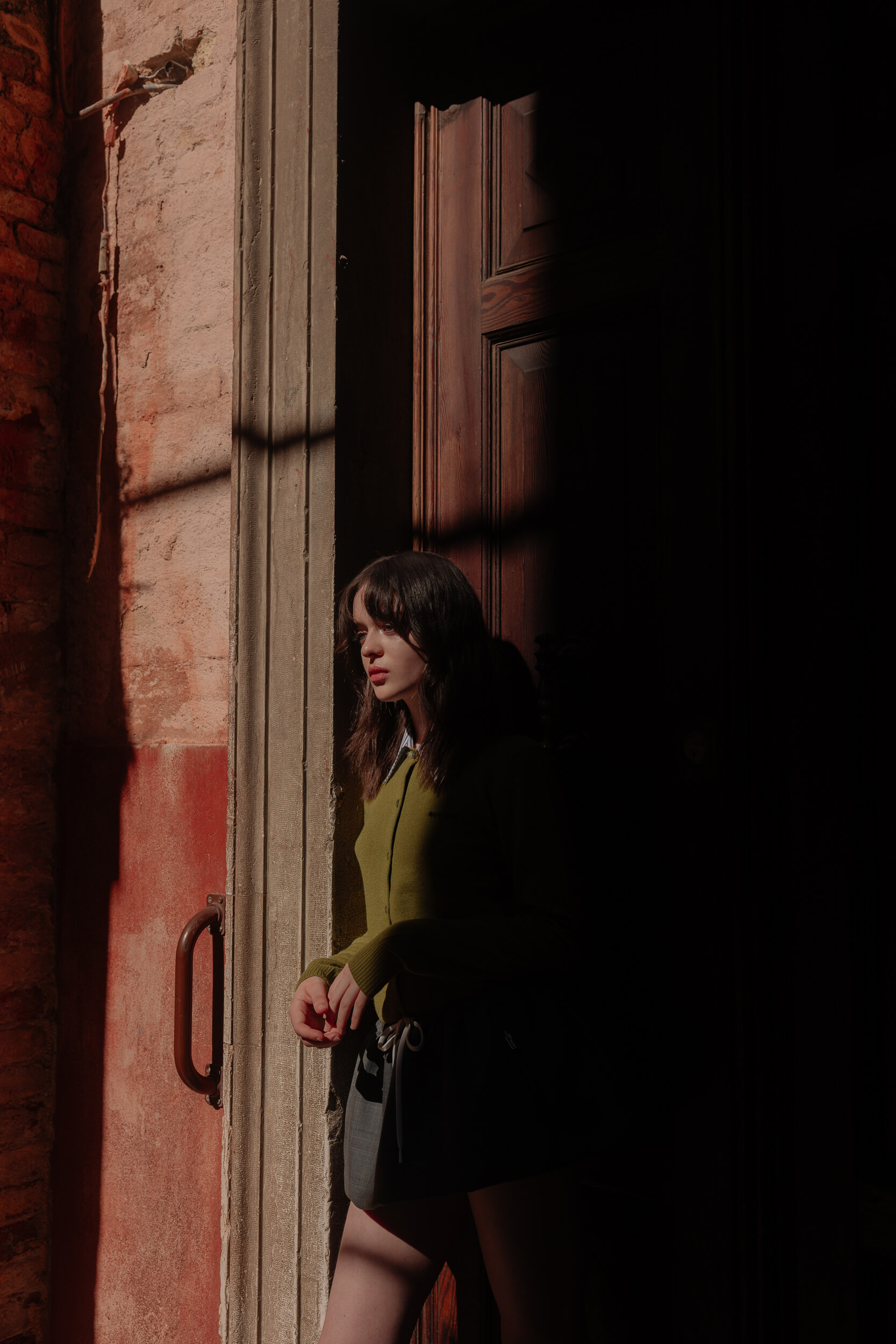
My last question is: what does it mean to feel comfortable in your own skin?
I’m definitely still figuring that one out.
Again, this film really helped me with it by “forcing me” to take down my barriers, which then I did even in my personal life. I’ve learned to share my opinions out loud more and not to be afraid of being a bit weird. I’ve always thought, “What if people think I’m a freak? The world’s gonna end!”, but now I believe most people, if you show your freakish side, are more interested in you. To feel comfortable, you just need to take those barriers down and be as weird as you like, and just be open to other people.
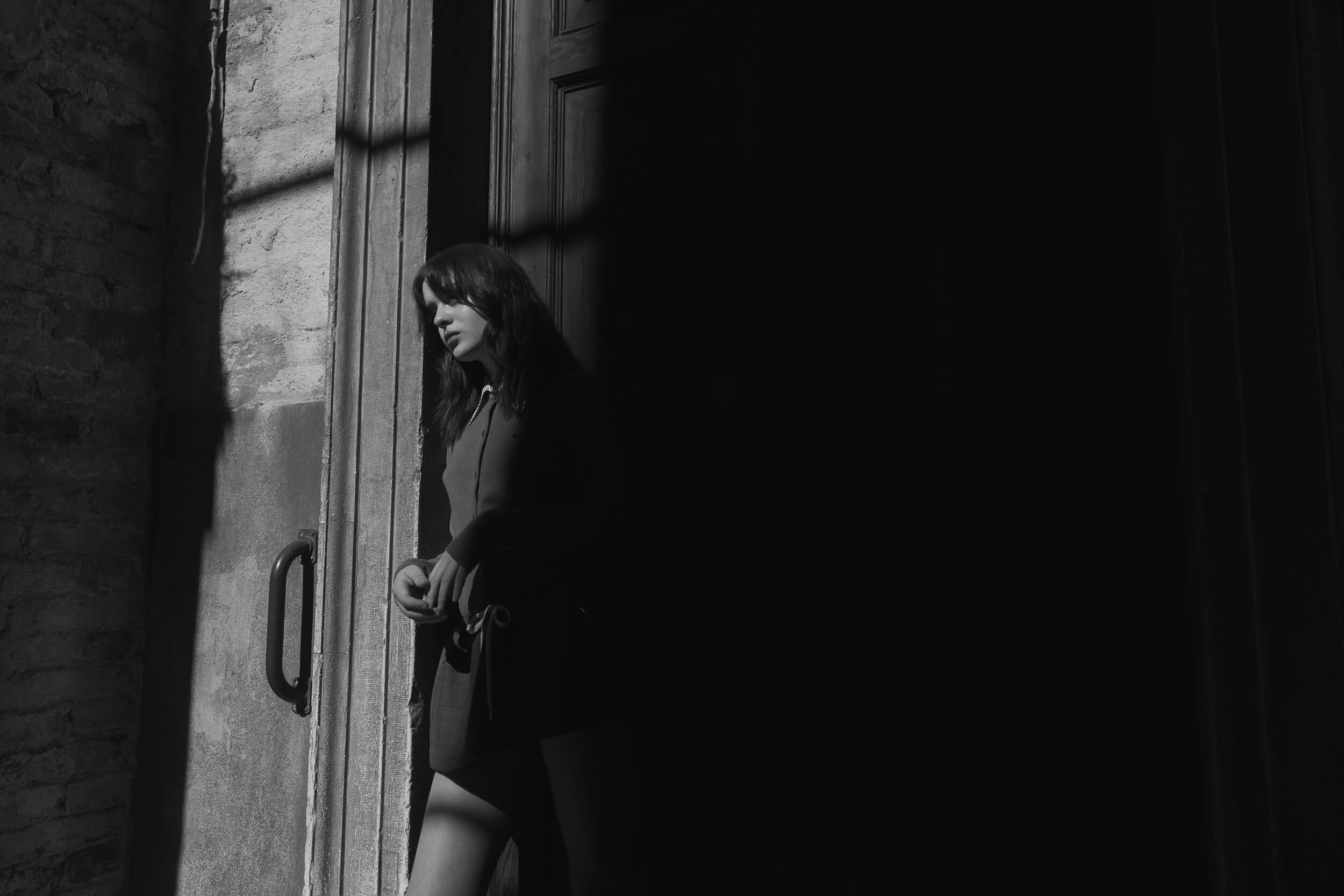
Photos by Johnny Carrano.
Styling by Sarah Rose Harrison.
Location: Hotel San Cassiano Cà Favretto.
Total Look: Miu Miu.

